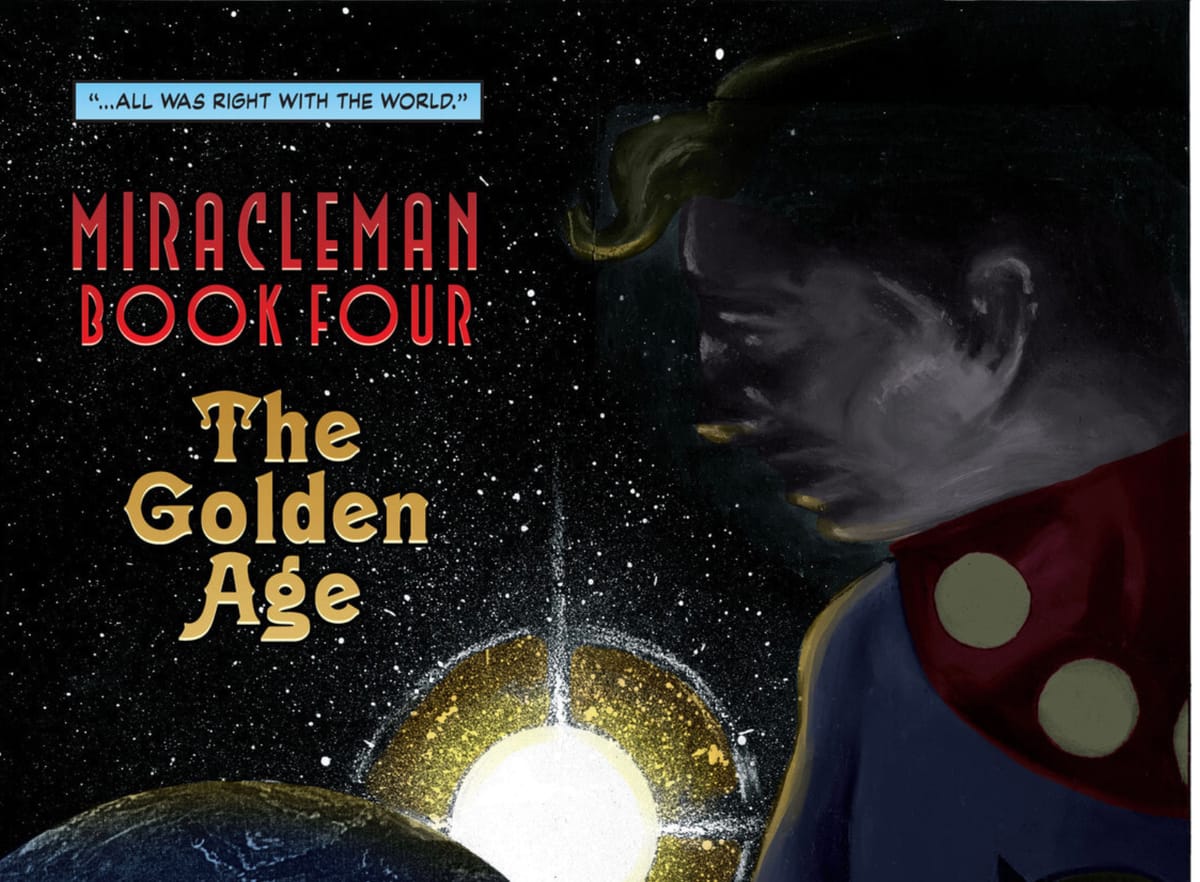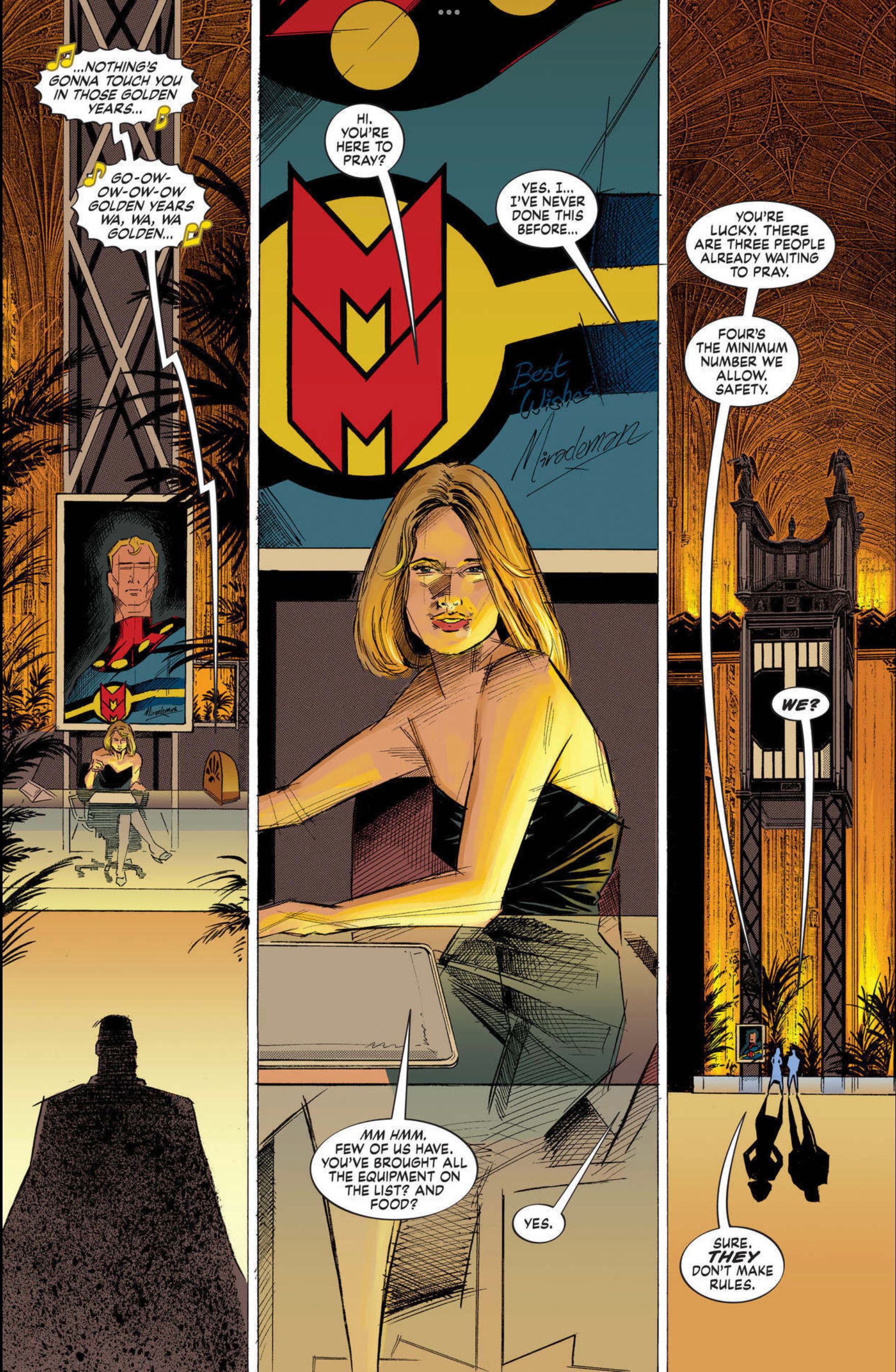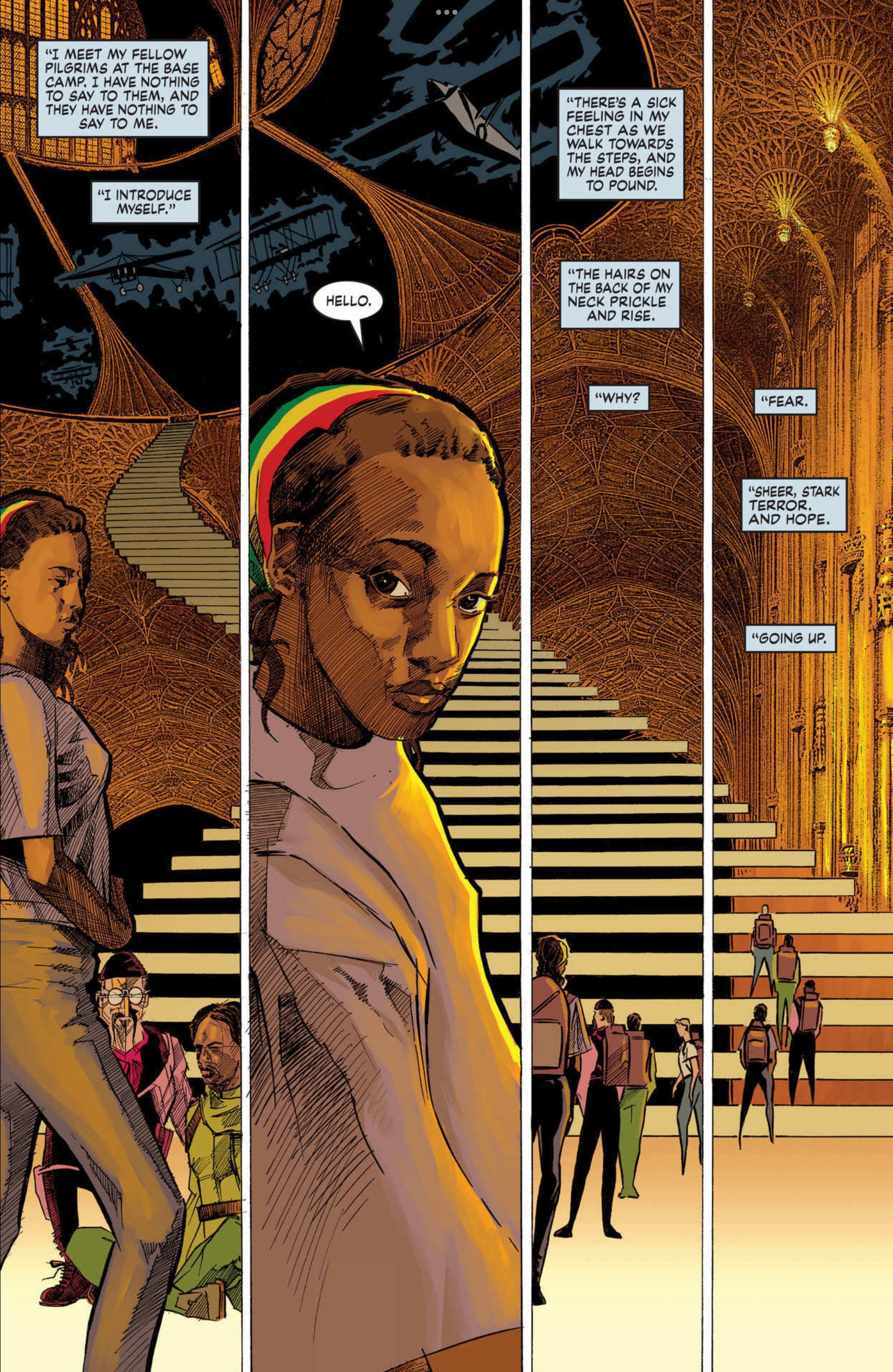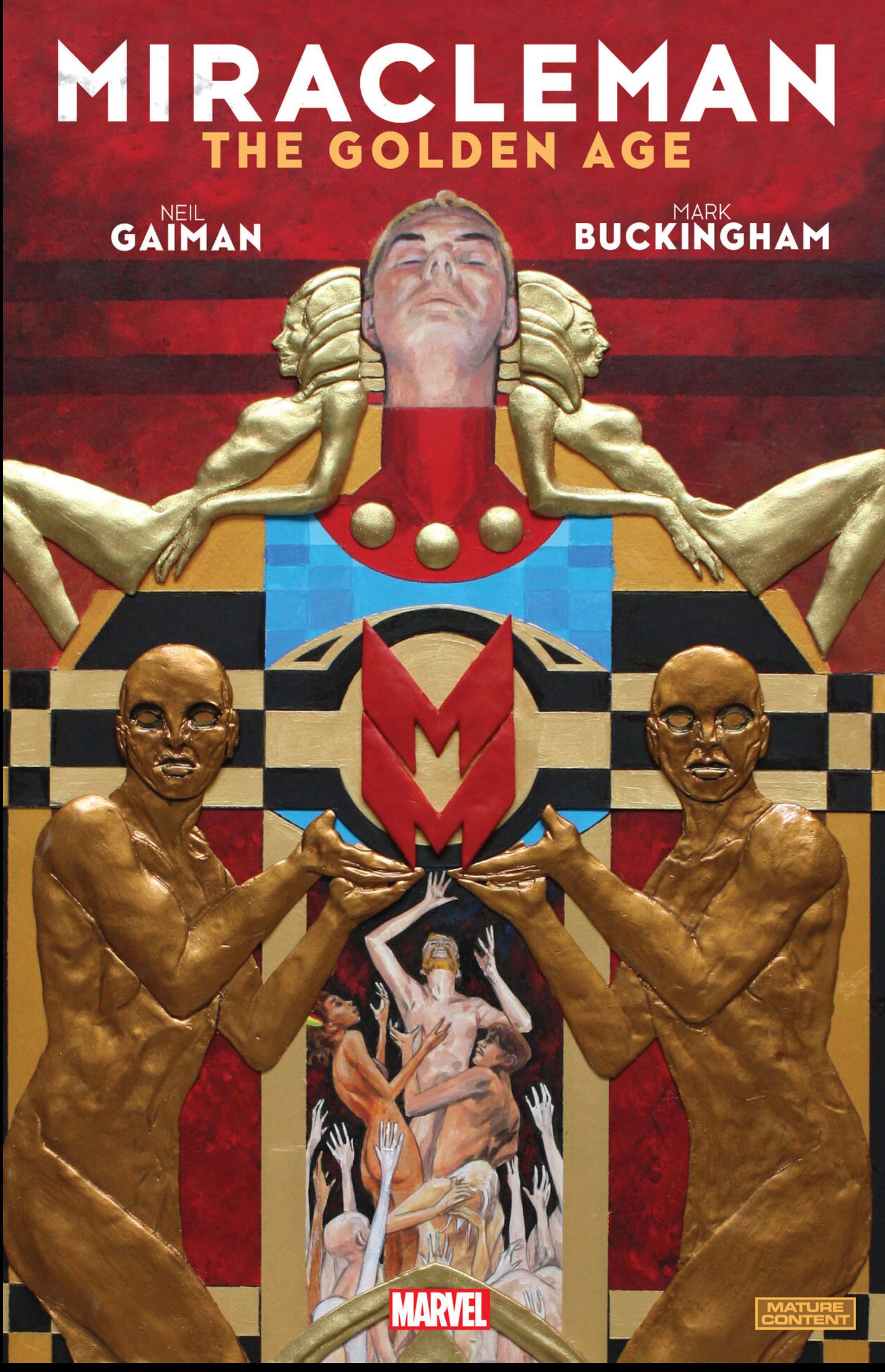From the Archive- Miracleman: The Golden Age
Neil Gaiman and Mark Buckingham reveal this post-superhero world through the stories and lives of normal but unsettled men and women.

It's just weird to think that these stories are over 30 years old and now just finally getting finished. With Marvel finally releasing Miracleman: The Silver Age #1, it's a good time to revisit this piece on Miracleman: The Golden Age, originally written for Newsarama back in March 2016.
Superheroes have pretty much become a ubiquitous presence in our entertainment spheres that it’s hard to imagine a world without them on our movie and television screens. But think about it a different way-- imagine what it would be like if golden gods and vile fiends with the powers of life and death really walked among us. Think about how different everything would be if Superman or Iron Man really did fly through our skies. It would almost be an unrecognizable world. In the 1980s, Alan Moore wrote his Miracleman story that ended with the heroes building a new Olympus on the remains of bombed-out London. After that, Neil Gaiman and Mark Buckingham began the now-collected Miracleman: The Golden Age, telling the story of the ten years following the gods' ascension and humanity's conflict over accepting these new gods into their everyday lives.
After the condition that Alan Moore (a.k.a. “the original writer”) and John Totleben left London and the world after their run on Miracleman, Gaiman and Buckingham have the unenviable job of rebuilding that world on a much different foundation. The world they have left to build from has been emotionally and physically scarred by the revelation of god-like men and women with powers we have only ever been able to dream about in the past. Sure, Miracleman saved London (and by extension the world) from a murderously maniacal Kid Miracleman. And as these gods/heroes try to recreate the world in their own image, Gaiman and Buckingham have to ask just how do you try to pretend that the world is normal when you’ve seen that the supernatural exists.

Gaiman reveals this post-superhero world through the stories and lives of normal but unsettled men and women. Miracleman: The Golden Age isn’t the continuing adventures of Miracleman and Miraclewoman, even if their stories are small parts of this new world, but Gaiman shows us a man whose daughter is slowly dying, a spy in a world that doesn’t allow for spies anymore, a woman who is watching her family crumble before her eyes, an artist who doesn’t know what art is in a world where an alien can reanimate the dead, a man who falls in love with one of those gods and other people whose existences are turned upside down when the world is revealed to be something completely other than what they thought.
The ever-changing art by Mark Buckingham and colorist D’Israeli gives Gaiman’s story a wonderful and exciting canvas to be told on. Shifting between cartoony, abstract, childlike, shadowy, and jubilant styles, Buckingham doesn’t define this new world of gods as simply as good or bad. The shifts in art create a world of possibilities and shades. There’s no way to label the new world under Miracleman and Miraclewoman because each and every perception of it is different. Even if the basic fibers of an earthly existence seem disrupted by the revelation of these powers, Buckingham’s art provides wonderful context by helping to define these different lives as still unique and vibrant things in a new world of wonders and miracles.

Working with that visually diverse world, Gaiman’s writing recalls some of the best issues of The Sandman where Gaiman didn’t focus on the large, grand story but more on the impact of the powers that be on the lives of men and women who inhabit that world. It’s that fascinating way that Gaiman writes about myths but frames them in ways that are intimate and personal. Playing with genres like Buckingham plays with artistic styles, Gaiman’s short stories about a supposed golden age leave a lot of room open for interpretation about what it is that makes this age so “golden.” Seeing the aftermath of the revelation of superheroes, Gaiman’s characters still struggle with their own small lives as if they were untouched by the new world order they now live in.
It’s easy to think that the world would have changed after the revelation that gods and demons walked and fought amongst us but Gaiman and Buckingham show just how steady and constant humanity is as their stories focus on such human qualities as love, hate, fear, and uncertainty. The gods may try to give mankind a utopia but humanity's own restlessness in Miracleman: The Golden Age shows just how unwilling we are to understand or accept the gifts of gods. Gaiman and Buckingham show a world in turmoil, not over war but over mankind’s own place in a world where gods now walk.






Comments ()